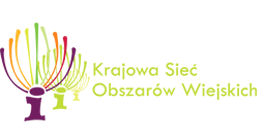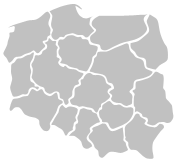ENRD Newsletter May 2018
NEWS:
Revitalising rural services through social and digital innovation
An ENRD Seminar (22 May 2018 – Brussels, Belgium) brought together a wide range of rural development practitioners and policy-makers to identify the drivers and practical steps for creating an enabling environment for ‘Smart Villages’.
The event showcased the rich variety of social and digital innovations that are springing up across Europe, highlighting the initiative of rural communities to boost services through available tools. Browse through the ENRD online portal to discover smart projects, initiatives and networks.
The seminar is part of the broader ENRD thematic work on ‘Smart Villages’ which also features issue No 26 of the EU Rural Review (see below) and a forthcoming edition of the EAFRD Projects Brochure.
Discover how rural communities across Europe are taking the initiative to find practical solutions to challenges they face and seize new opportunities – read the new edition of the EU Rural Review on ‘Smart Villages: Revitalising Rural Services’.
This issue explores how digital and social innovation can be used in creative ways to improve basic services in rural areas. It further looks at national and regional approaches to creating an enabling environment, as well as how the Rural Development Programmes can catalyse rural service innovation and leverage additional funding to achieve an even bigger impact.
For subscriptions to ENRD publications, please write to subscribe@enrd.eu.
A new EU-funded pilot project is working between December 2017 and April 2019 to map out challenges and opportunities in rural areas, provide a definition of ‘smart villages’, and identify good practice examples and case studies on the topic.
In exploring strategies and approaches to a village becoming ‘smart’, the project is looking to collect insights into innovative ways of addressing rural challenges.
The European Commission proposed on 2 May 2018 the new EU budget for the EU-27, including for a reformed, modernised Common Agricultural Policy (CAP).
The Commission is proposing a budget of € 365 billion for the new CAP that will continue to support direct payments to farmers and rural development. It will place a greater emphasis on the environment and climate, support the transition towards a more sustainable agricultural sector and the development of vibrant rural areas.
For additional information, see all the EU budget legal texts and factsheets, a set of questions and answers, and a statement by Commissioner for Agriculture and Rural Development Phil Hogan.
A recent ENRD workshop (3 May 2018 – Brussels, Belgium) brought together young farmers, entrepreneurs, and policy-makers to explore ways of creating employment opportunities and services for rural youth.
The event showcased inspiring examples of youth initiatives and projects related to entrepreneurship, rural-urban linkages, communication, and digitisation. Additionally, it discussed how various policy tools, funds, and their strategic combination could be used to improve the attractiveness of rural areas for young people.
The event is part of the broader ENRD thematic work on ‘Social Inclusion’.
Join the ENRD Seminarium on ‘Sustainable Management of Water and Soils' on 14 June 2018 in Brussels, Belgium!n ‘Sustainable Management of Water and Soils' on 14 June 2018 in Brussels, Belgium!
The event will discuss how the Rural Development Programmes (RDPs) can support resource efficiency objectives, including enabling factors and bottlenecks in the implementation of relevant RDP Measures.
The Seminar is part of the broader ENRD thematic work on this topic. For additional information, see the related editions of the EAFRD Projects Brochure and EU Rural Review.
A major AgriResearch Conference (2-3 May 2018 – Brussels, Belgium) brought together over 500 stakeholders to discuss how to further streamline agricultural and rural research and innovation activities and to maximise synergies with the Common Agricultural Policy (CAP).
The event produced a series of factsheets – overviewing digital transformation in rural areas; human capital; sustainable value chains; public goods; soils; water, nutrients and waste – and including ongoing projects and upcoming funding opportunities.
A new report by the European Court of Auditors on the use of Simplified Cost Options (SCOs) for rural development projects concludes that SCOs reduce the administrative burden for both beneficiaries and national authorities, and should be more widely used.
The report reveals that SCOs only constitute a small part of the 2014-2020 spending due to the diverse nature of rural development projects. SCOs can keep project costs under control, as long as they are set at the right level and based on a fair, equitable and verifiable methodology.
A new publication by the advisory platform fi-compass explores the implementation of the European Agricultural Fund for Rural Development (EAFRD) through Financial Instruments, based on practical experiences in EU Member States.
The study examines the preparatory work done by Managing Authorities, the legal framework and its impact on the implementation of Financial Instruments, and how these have been programmed in the 2014-2020 Rural Development Programmes (RDPs).
A recent policy brief published within the BSR Stars S3 project explores how to achieve inclusive digitisation in the Baltic Sea region and identifies potential benefits and unique challenges to rural areas.
The brief sets out policy recommendations – such as a separate policy for the digitisation of rural communities and ICT expert support to rural SMEs – as well as four best practice examples showcasing joint action by local government, public institutions and rural firms.
Are you involved in a project providing access to high-speed broadband internet? Apply for the European Broadband Awards by 7 September 2018!
A wide range of projects – big or small, rural or urban, private or public, advanced in implementation or not, and covering all technologies – are eligible to apply.
Get inspired by last year’s winning projects, including one on broadband network development in Greek rural areas.












